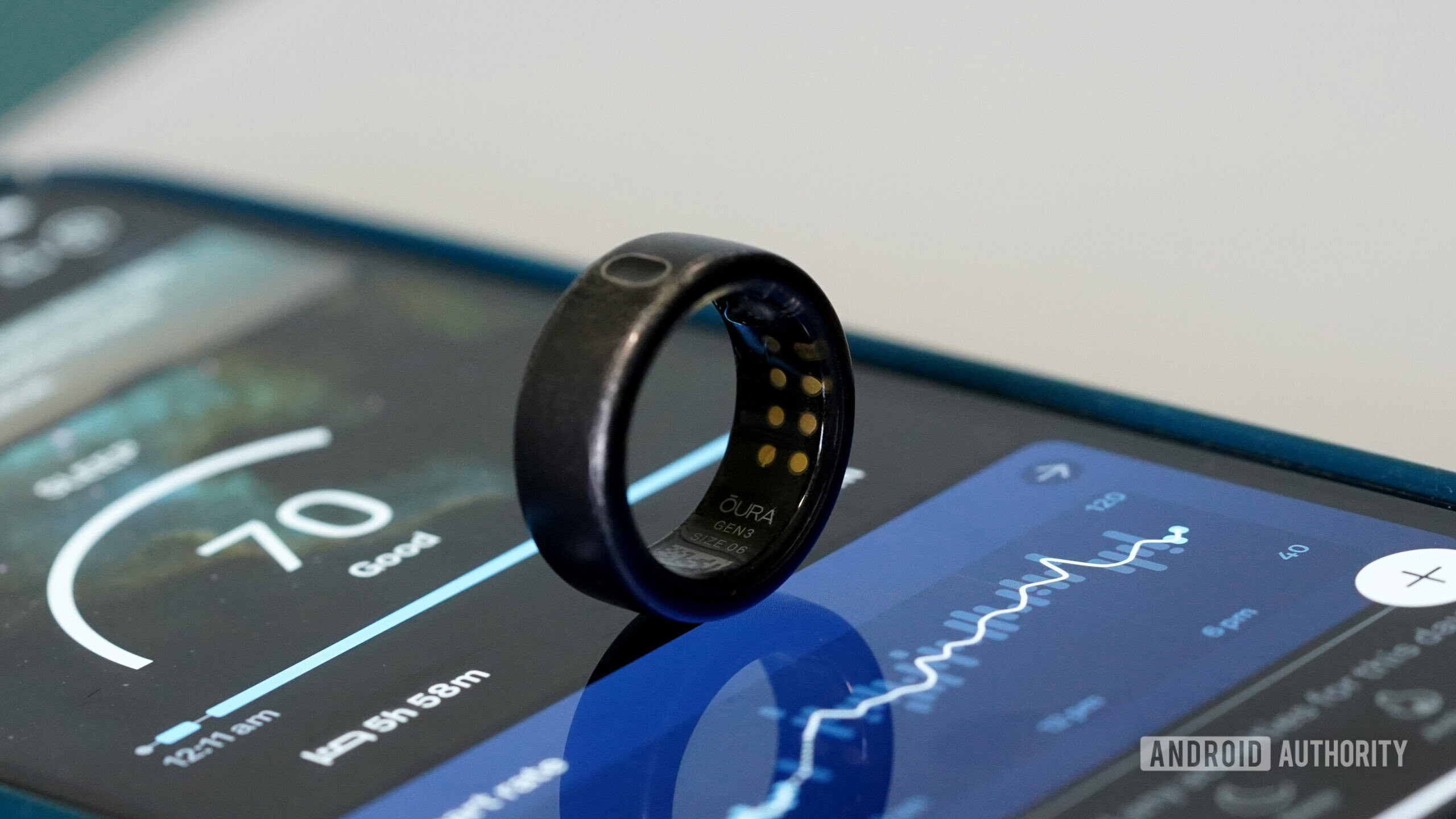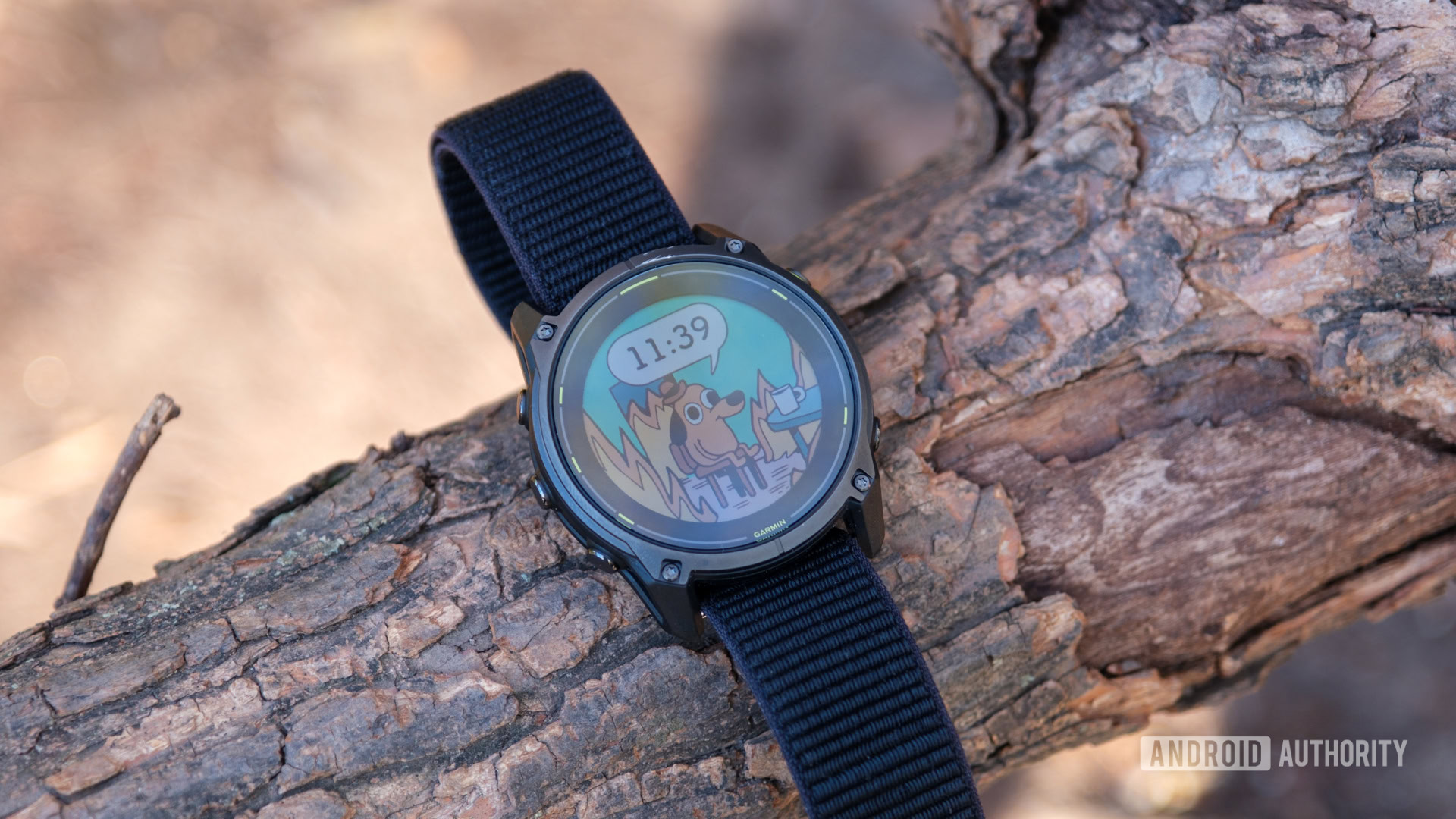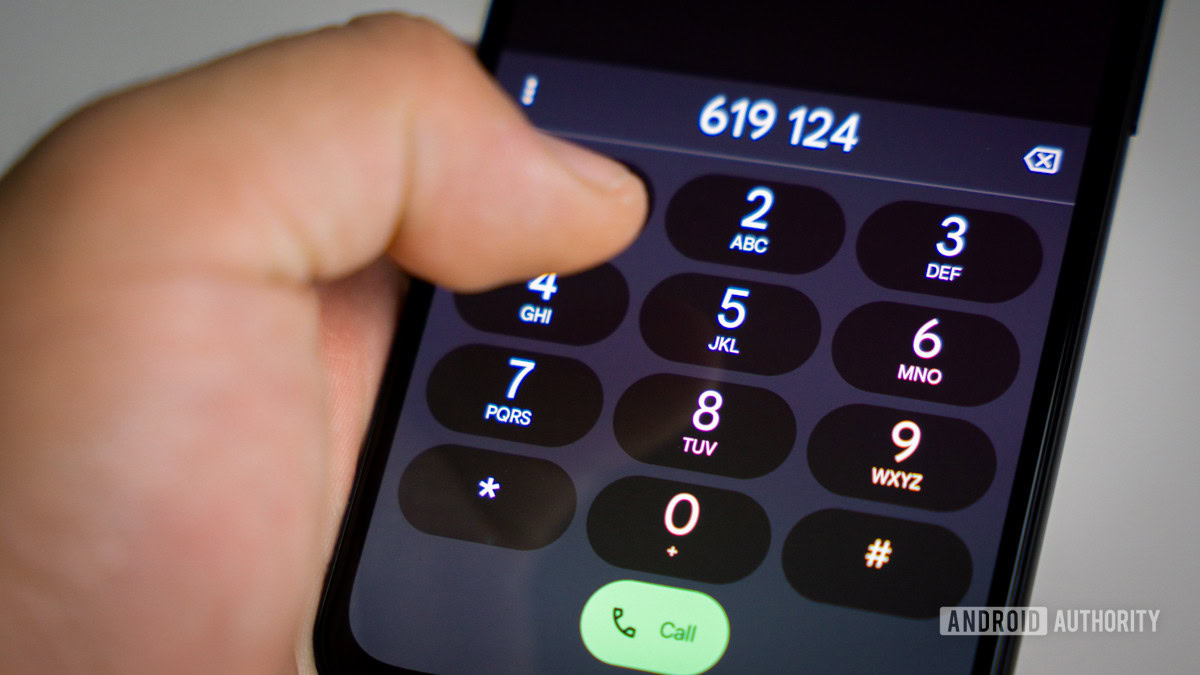
Kaitlyn Cimino / Android Authority
TL;DR
- Evidence in the latest version of the Oura app for Android suggests heart rate zones support is coming soon.
- Oura would have six different zones.
- This is a feature we usually see on smartwatches and fitness trackers.
Smart rings are currently more basic for fitness tracking when compared to smartwatches and wrist-based fitness trackers, but that will change over time. For example, smart rings already track your heart rate constantly throughout the day, so there’s no reason they shouldn’t be able to aggregate that data into heart rate zones to better assist you in tracking your activities. Wouldn’t you know it, but market leader Oura is working on doing just that.
An APK teardown helps predict features that may arrive on a service in the future based on work-in-progress code. However, it is possible that such predicted features may not make it to a public release.
In the latest version of the Oura app for Android (5.3.4 beta 2), we see a slew of strings related to heart rate zones. These features are not currently active, but through the strings, we can get a good idea of what to expect. Check out a portion of the strings we spotted below:
Code
<string name="awhr_hr_summary_header">Heart rate summary</string> <string name="awhr_hr_summary_majority">Zone %d activity</string> <string name="awhr_hr_zone_0_title">Zone 0</string> <string name="awhr_hr_zone_1_title">Zone 1</string> <string name="awhr_hr_zone_2_title">Zone 2</string> <string name="awhr_hr_zone_3_title">Zone 3</string> <string name="awhr_hr_zone_4_title">Zone 4</string> <string name="awhr_hr_zone_5_title">Zone 5</string> <string name="awhr_hr_zone_title">Zone %d</string> <string name="awhr_hr_zones_about_link">About your heart rate zones</string> <string name="awhr_hr_zones_edu_cardiovascular_health_body">Physical activity is key for cardiovascular health — and while heart rate zones 4 and 5 can be worthy pursuits, time spent in zones 2 and 3 offers amazing long-term benefits. Over time, try to seek out activities that you find fun and rewarding; balance exercise and rest; and check in on metrics like heart rate and cardiovascular age to track the impact of your activity on your heart health.</string> <string name="awhr_hr_zones_edu_cardiovascular_health_header">Cardiovascular health</string> <string name="awhr_hr_zones_edu_description">Heart rate assesses the intensity of an activity. Heart rate zones specify ranges of intensity that offer different benefits to long-term health.</string> <string name="awhr_hr_zones_edu_long_term_benefits">Long-term benefits</string> <string name="awhr_hr_zones_edu_metabolic_health_body">Time spent in all six heart rate zones can have positive impacts on our metabolic processes. Rigorous exercise is great, but even low-intensity activities and everyday movement can improve our energy, weight management and insulin sensitivity over time.</string> <string name="awhr_hr_zones_edu_metabolic_health_header">Metabolic health</string> <string name="awhr_hr_zones_edu_title">Heart rate zones</string> <string name="awhr_hr_zones_edu_your_zones_description">Oura uses six heart rate zones. The heart rate ranges below are personalized based on a percentage of your max heart rate of %d bpm.</string> <string name="awhr_hr_zones_edu_your_zones_title">Your zones</string> <string name="awhr_hr_zones_edu_zone_0_description">You’re either fully at rest or moving slowly. This zone is associated with recovery.</string> <string name="awhr_hr_zones_edu_zone_1_description">You’re moving at a light, steady pace, promoting circulation without much strain. It’s still easy to speak in full sentences. This zone is associated with metabolic health, and is common in warm-ups, cool-downs, and low-intensity activities.</string> <string name="awhr_hr_zones_edu_zone_2_description">Great for building endurance and supporting metabolic and cardiovascular health. You’re moving at a light-to-moderate pace that may cause mild strain but feels sustainable. At this intensity, you’re still able to talk in full sentences, but it feels a bit harder than zone 1.</string> <string name="awhr_hr_zones_edu_zone_3_description">You’re expending moderate-to-high amounts of energy and feeling more strain. Your breathing is more labored and it’s becoming difficult to maintain a conversation. Zone 3 is harder to sustain, but can have increased benefits for your cardiovascular fitness and muscle strength.</string> <string name="awhr_hr_zones_edu_zone_4_description">You’re exerting near-max effort — moving with high intensity and really challenging your body. Time spent in this zone has high cardiovascular benefits, but should be balanced with recovery. At this intensity your breathing is much quicker and you can only speak a few words at a time.</string> <string name="awhr_hr_zones_edu_zone_5_description">All-out effort, with your heart and respiratory system working at maximum capacity. This zone should leave you out of breath while fortifying your cardiovascular and metabolic health.</string> <string name="daytimeHR_details_activity_hr_zones_link">Learn about heart rate zones</string>From these strings, we can glean that Oura will provide six heart rate zones. This is a bit more than some other brands offer. For example, Fitbit has four heart rate zones: light, moderate, vigorous, and peak. From these strings, it looks like Oura has added an extra zone at the bottom and at the top to make things a bit more refined than Fitbit.
Unfortunately, we don’t know when Oura will roll out support for heart rate zones in the app. Given that the strings are there — and seem very specific in describing what the feature is — we can only imagine it won’t be long before this goes public.
Got a tip? Talk to us! Email our staff at [email protected]. You can stay anonymous or get credit for the info, it's your choice.







 English (US) ·
English (US) ·